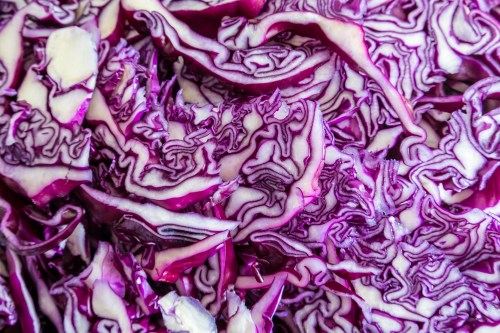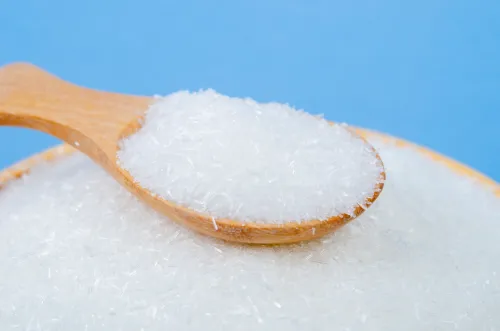Quick poll: When you think of a delicious snack, what kinds of foods come to mind? I’m willing to bet that you voted for things like pretzels, popcorn, chips, or even carrot sticks over something like, say, applesauce or oatmeal. Why? The crunch factor, of course.
Experts in This Article
Charles Spence, Ph.D., is a gastrophysicist and professor of experimental psychology, and head of the Crossmodal Research Laboratory at the University of Oxford.
Hugh Humphery, MD, is a functional medicine psychiatrist and Everlywell advisor.
Whether it’s a heaping pile of pita chips, a crisp apple, or a fresh cucumber salad, people (myself included) can’t seem to get enough of that crispy, crunchy texture. But why?
According to a gastrophysicist (someone who studies gastrophysics, aka how our food experience is shaped by our senses and environment) and a psychiatrist, our perception of food doesn’t just come down to just how it tastes. Interactions between our olfactory and gustatory receptors (smell and taste) account for about 80 to 90 percent of our flavor perception. But what about the other 10 to 20 percent? Turns out, texture and sound play an underrated role—and may explain the unique kick many of us get out of crunchy food in particular.
How does crunchiness affect our perception of food?
Have you ever sat down to watch a movie with a big bowl of popcorn, and before you know it, all of it is gone? Or, do you always need to add a big handful of chips into a sandwich to add a little crunch before you even take a bite? Well, your love of the crunch might not be purely coincidental.
According to Charles Spence, PhD, a gastrophysicist, professor of experimental psychology, and head of the Crossmodal Research Laboratory at the University of Oxford, his extensive research on multisensory flavor perception shows that there’s a direct correlation between crunchiness and how a food is perceived.
In one landmark study Dr. Spence conducted, participants bit into 180 Pringle chips between their front teeth and rated them in terms of their freshness or crispness over the course of one hour. The catch? Participants received real-time sounds associated with their own biting action over closed-ear headphones. However, the auditory feedback was manipulated in terms of its overall loudness and frequency composition, making some chips sound crisper than others.
The result: Participants rated potato chips as tasting both significantly crisper and fresher when the overall sound level was increased or when the high-frequency sounds were boosted. And on the other hand, chips were rated stale or softer when the sound and frequency were lowered. (Similar findings were observed in an Italian study on apples and crispness). “Thus, it would appear that people’s perception of the textural properties of both dry and moist food products can be changed simply by modifying the sounds that we hear,” Spence wrote in a 2015 review of studies on the subject.
Dr. Spence says that sound is a tactic food businesses have used for decades. He has partnered with companies like Unilever to provide a new way of product innovation that tests how consumers might respond to foods depending on their crunchiness. “It’s like a prototype in a way. We virtually changed the sounds of the foods people were eating to see what they liked, to determine the sound they want of crunchy, crisp, or crackly to engineer that product,” he explains.
What makes crunchy food appear to taste so much better?
So, what exactly makes crunchy food more appetizing than a quiet, noiseless one? “There’s no energy value in sound alone, so it’s kind of peculiar that we might like noisy foods,” Dr. Spence says. Take, for example, a soggy chip (a near-universally distasteful experience). “It’s got the fat, sugar, and flavoring. But all it doesn’t have is the crunch,” he says. What makes a crunchy chip far more appealing than a soft, mushy one?
Dr. Spence posits that to our brains, crunchiness might indicate freshness, making it more appealing to the senses. “In the case of fresh produce, like fruits and vegetables, fresher produce tends to be noisier and has a higher nutrient value. Whereas, as they tend to get older, they lose some of their nutritional value. In evolutionary terms, this might be why we like noisier foods, as this might signal freshness,” Dr. Spence says. Meanwhile, he notes that fatty foods that are processed or fried (and crunchy) might appeal as a proxy for energy density.
He also notes that crunchiness helps redirect the attention to the activity of eating. “Mostly when we eat, we don’t really pay attention to what we’re consuming. We’re on mobile devices, chatting, or watching television. Rarely is our attention on what we’re tasting,” he explains. However, noisy food draws your attention to your mouth, which Dr. Spence says may make you more mindful of what you’re consuming and create a potentially more enjoyable experience.
“When you eat something and keep eating it, you adapt to it. It fades into the background because of habituation or adaptation, and it doesn’t taste as much as it did when you first bit into it. This desensitization happens more slowly if the food is noisy. Meaning noisy foods can be enjoyed for longer because the sound can help prolong the [sensory] experience,” Dr. Spence says, adding that current research is studying these effects.
What psychological effects does crunchy food have on stress levels?
According to Hugh Humphery, MD, a functional medicine psychiatrist and Everlywell advisor, many factors play significant roles in food selection, such as behavioral, social, and cultural. But he agrees that sensory qualities of food tend to take center stage, as demonstrated by Dr. Spence’s research. However, he says in addition to this, crunchy foods might benefit your stress levels, too.
According to Dr. Humphery, stress can result in changes in food intake patterns. “Studies have indicated that when a person is stressed, the amount and the type of food one ingests change based on sex, age, the type of stressor, and the restraint level of the individual,” he says. However, according to him, there are several categories of foods that are top choices for stressed individuals, with crunchy foods being one of them.
“Crunchy foods lead to enhanced neural responses in areas of the brain that experience pleasantness and reward, increasing the sensation of well-being and secondarily reducing stress,” Dr. Humphery says. Hand over the bag of chips, why don’t ya?
Crunchy is the name of the game with this easy chocolate popcorn bark:
Sign Up for Our Daily Newsletter
Get all the latest in wellness, trends, food, fitness, beauty, and more delivered right to your inbox.
Got it, you've been added to our email list.











